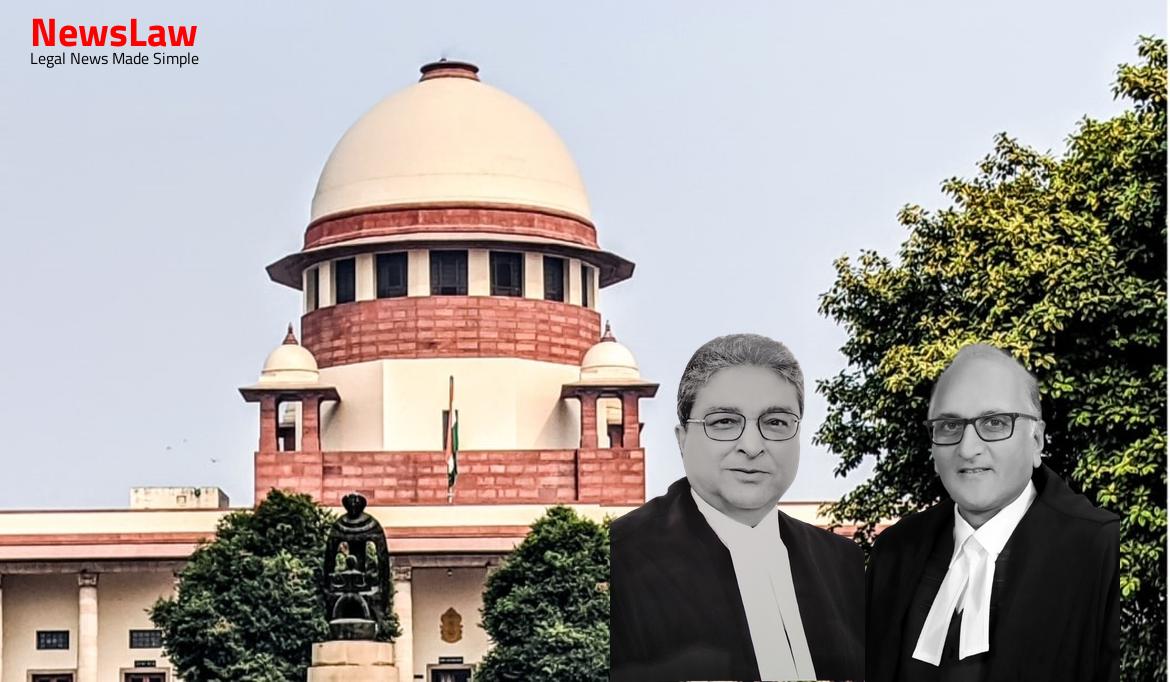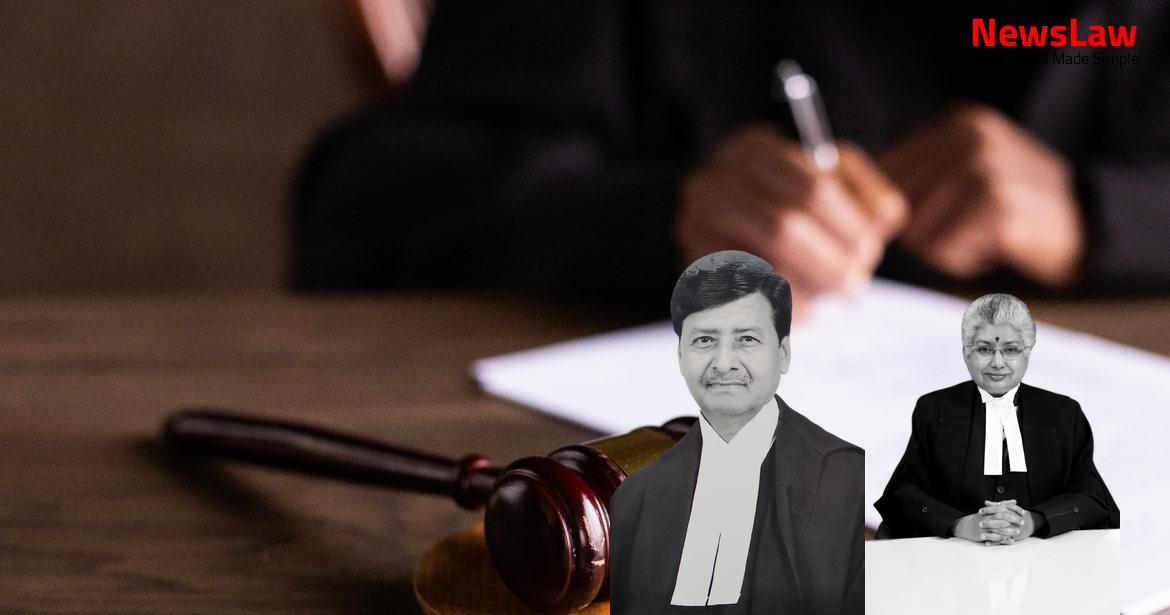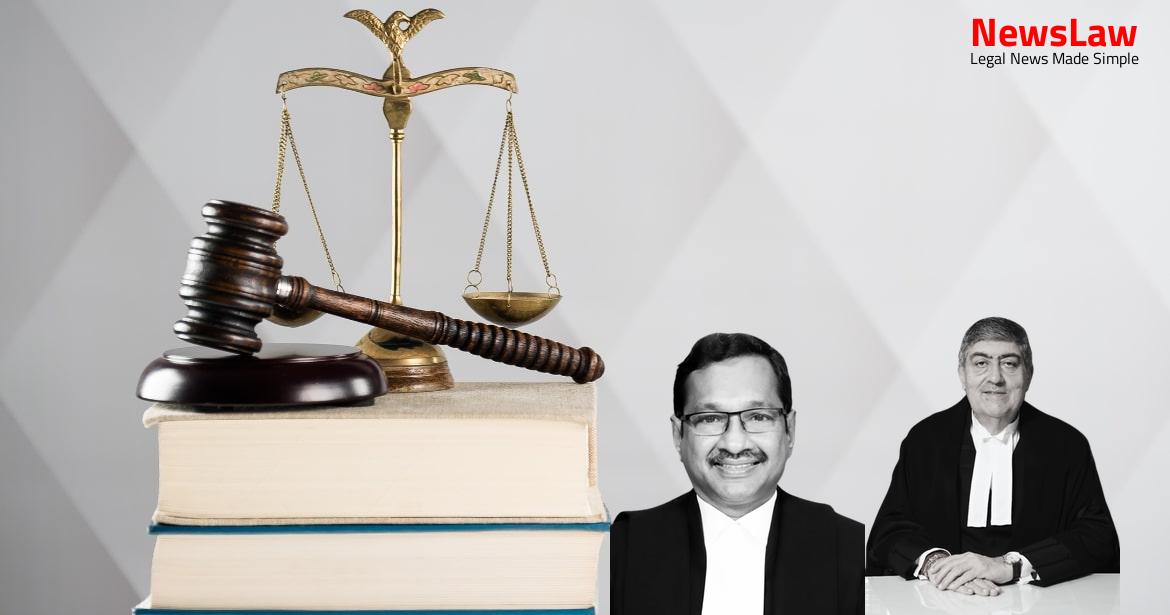Delve into the complexities of arbitration law as we examine the court’s legal analysis surrounding jurisdictional boundaries. Discover the crucial role of the arbitral seat and governing law in international commercial disputes. Stay informed about the applicability of Part I of the Arbitration Act, 1996 to foreign awards as we navigate through the intricacies of legal proceedings.
Facts
- The appellant, NV Engineering, challenged a judgment of the Bombay High Court.
- Jindal appointed Mr. Desai as its nominee on the arbitral tribunal.
- Jindal filed a petition under Section 34 of the Act challenging the partial award before the Bombay High Court on 20.2.2000.
- After considering the claims and counterclaims, the tribunal made a partial award on 01.02.2000, rejecting Jindal’s claims.
- NV Engineering applied for enforcement of the partial and final awards under Sections 47 and 48 of the Act relating to foreign awards.
- The respondent, Jindal, is a public limited company incorporated under relevant Indian law.
- Mr. Richard Fernyhough Q.C. was appointed as Chairman of the Arbitral Tribunal.
- All the obligations of Enco towards Jindal were taken over by NV Engineering.
- The appointment of Mr. Desai and Prof. ACC Alberto Santa Maria as Arbitrators was confirmed by the ICC.
- The Division Bench set aside the single judge’s order ruling that a petition under Section 34 was not maintainable to challenge a foreign award.
- The Division Bench relied on previous court judgments to support the validity of challenging a foreign award under Section 34.
- The Division Bench held that the two awards were enforceable except for a specific payment direction in one of the awards.
- A replacement co-arbitrator was appointed by the ICC during the proceedings.
- Jindal appealed against the final award before the Division Bench while the challenge to the partial award was still pending in the High Court.
Also Read: Electoral Malpractices in Mayor Election
Arguments
- The appellant argued that the order holding the petition under Section 34 was not maintainable and thus the findings in the judgment were untenable.
- Clause 12.4.1 of the contract stated that it would be governed by Indian law, indicating the parties’ intent for Indian law to govern arbitration.
- The regulation and challenge to an award in arbitration conducted in a specific country must be done by the courts of that country.
- Cases where the juridical seat is not in India or the law governing arbitration is not Indian law would be bound by BALCO.
- The appellant emphasized that foreign awards cannot be challenged under Section 34 of the Act.
- The appellant relied on BALCO extensively to argue that foreign awards made outside India cannot be challenged solely based on the agreement stating Indian law would govern the agreement.
- The argument was supported by the discussion in BALCO that if the arbitration agreement provides for a seat/place of arbitration outside India, Part I of the Arbitration Act, 1996 would not be applicable, and Indian courts cannot exercise supervisory jurisdiction over the arbitration or award.
- Mr. Jay Salva, senior counsel for Jindal, argued that the impugned judgment is sound and should not be interfered with.
- Section 34 and Section 48 operate in distinct fields; Section 34 allows for challenging the legality of an award, while Section 48 pertains to the enforcement of a foreign award.
- Courts in India have recognized the difference between the two sections, as seen in the cases of Bhatia International and Venture Global.
- Mr. Salva contended that the decision in BALCO should not control the current case, despite the appellants’ argument.
Also Read: Balancing Power and Transparency: Electoral Bonds Struck Down, Disclosure Mandated
Analysis
- The Arbitration Act, 1940 was considered a self-contained code on matters pertaining to arbitration.
- The Arbitration and Conciliation Act, 1996, aimed to consolidate, amend, and harmonize the law relating to arbitration with the UNCITRAL Model.
- Appeals not mentioned are impermissible as per the negative import mentioned in previous cases.
- When the arbitration agreement designates a seat outside India, Part I of the Arbitration Act, 1996 does not apply.
- Parties can import provisions from the Arbitration Act, 1996, for the internal conduct of arbitration, if it aligns with English procedural law.
- The determination of the juridical seat and the governing law of the arbitration agreement dictate which law governs the arbitration proceedings.
- If the arbitration seat is outside India or if another law governs the agreement, Part I of the Arbitration Act, 1996 is excluded.
- The decision in Fuerst Day Lawson Ltd. v. Jindal Exports Ltd. supports the exclusion of Part I if the seat is outside India or if a different law governs the agreement.
- Section 20 of the Arbitration Act, 1996 allows parties to agree on a ‘place’ or ‘seat’ of arbitration within India.
- The party seeking to resist enforcement of an award must prove grounds listed in Sections 48(1) and (2) and/or the Explanation of sub-section (2).
- The court may refuse to enforce a foreign award upon satisfactory proof of grounds listed in Section 48(1) by the party resisting enforcement.
- Recognition and enforcement of an arbitral award may be refused if the subject matter is not capable of settlement through arbitration under the law of the country where enforcement is sought or if enforcement would be contrary to public policy.
- The award may not be binding on parties or may have been set aside or suspended by a competent authority in the country where the award was made.
- The Arbitration Act, 1996 is subject-matter centric and not exclusively seat-centric.
- Courts at the seat of arbitration exercise supervisory jurisdiction over the award.
- Courts where arbitration takes place must exercise supervisory control over the arbitral process.
- Provisions set out defenses to resist enforcement of a foreign award.
- London is described as a venue, not the center of gravity for the Arbitration Act, 1996.
- Courts competent to annul or suspend an award are in the countries where the award is made.
- International commercial awards made outside India can’t be annulled by Indian courts.
- Indian courts’ jurisdiction is limited to setting aside awards of international commercial arbitrations taking place in India.
- Part I of the Arbitration Act, 1996 does not apply to international commercial arbitration held outside India.
- The legal ‘seat’ of arbitration is distinct from a convenient venue for hearings.
- The principle of territoriality is crucial in interpreting arbitration provisions.
- Sections of the Act confirm the importance of the arbitral seat in international arbitration.
- The conduct of arbitral proceedings must be connected with the law of the seat of arbitration.
- The enforcement court independently determines the recognition and enforceability of a foreign award in India.
- Arbitration agreements are separate agreements regulating arbitration procedures.
- The jurisdiction of Indian courts is based on the location of the cause of action and the place of arbitration.
- Part I of the Act applies only to awards made in India and not to foreign awards.
- Interpreting clauses based on seat of arbitration can result in exclusive jurisdiction of courts at that seat.
- If the seat/place of arbitration is outside India, Part I may be inapplicable if inconsistent with the arbitration law of the seat.
- The analysis highlights that Part I of the Arbitration Act, 1996 does not apply to arbitrations held outside India.
- An appeal against an order of enforcement is untenable due to Section 50.
- Jindal’s objections to the single judge’s order can be raised in separate proceedings.
- These proceedings cannot be pursued under the Code of Civil Procedure.
- Question of limitation is left open for Jindal if they choose to pursue a remedy.
- Fuerst Day Lawson decision, over 10 years old, settled the law and has been consistently followed.
- Jindal cannot claim ignorance of the law.
- Impugned judgment and order are set aside, appeal is allowed.
Also Read: Recall of Resolution Plan Approval: Legal Analysis
Decision
- Respondent No.1 is directed to pay costs quantified at ₹ 1,50,000/ –
- The costs shall be paid by the respondent No.1
Case Title: NOY VALLESINA ENGNR.SPA (NKA NOY AMBIENTE S.P.A.) A CORP. ORGANISED AND EXISTING UNDER THE LAWS OF I Vs. JINDAL DRUGS LTD. THR. M.D. (2020 INSC 659)
Case Number: C.A. No.-008607-008607 / 2010



